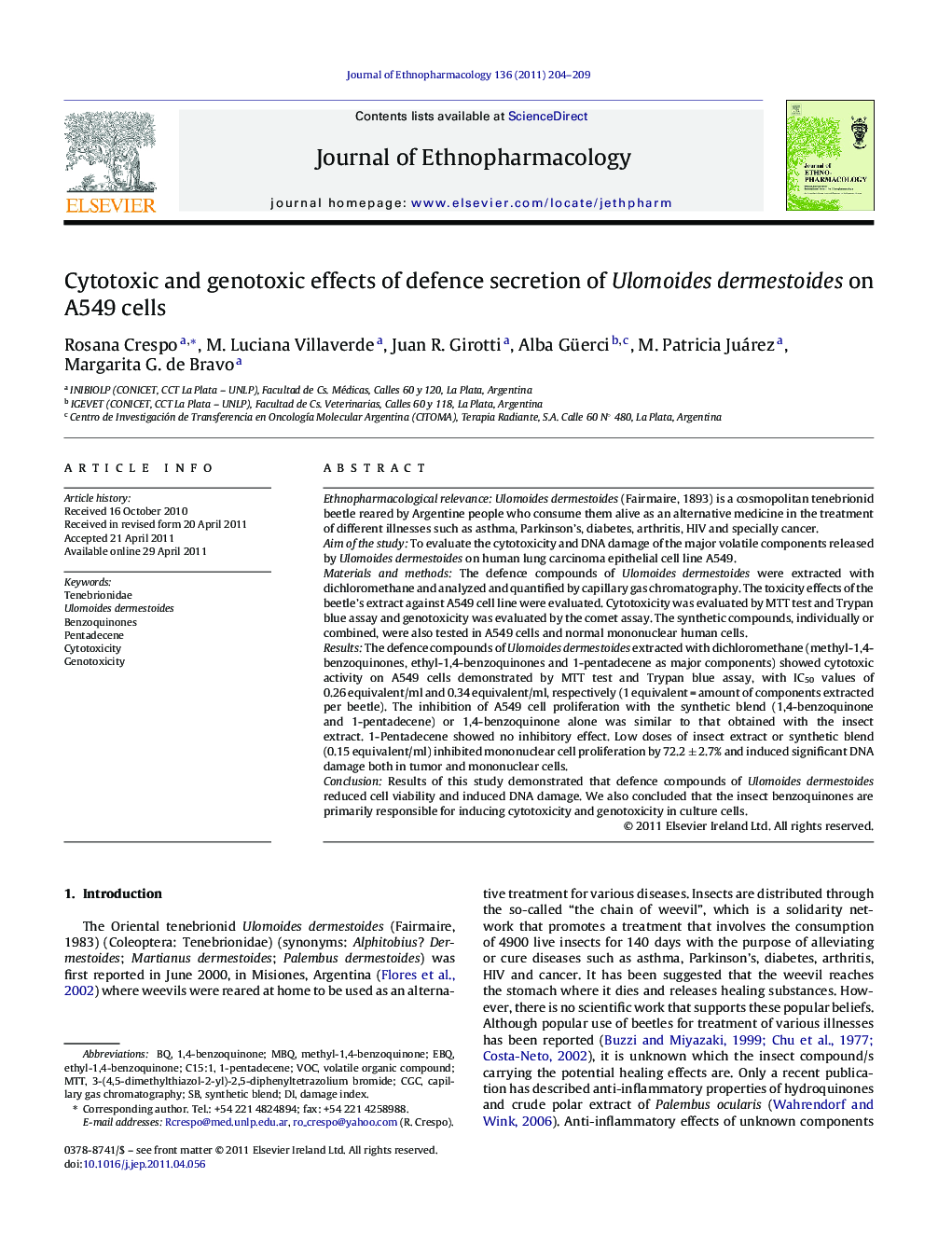| Article ID | Journal | Published Year | Pages | File Type |
|---|---|---|---|---|
| 2545721 | Journal of Ethnopharmacology | 2011 | 6 Pages |
Ethnopharmacological relevanceUlomoides dermestoides (Fairmaire, 1893) is a cosmopolitan tenebrionid beetle reared by Argentine people who consume them alive as an alternative medicine in the treatment of different illnesses such as asthma, Parkinson's, diabetes, arthritis, HIV and specially cancer.Aim of the studyTo evaluate the cytotoxicity and DNA damage of the major volatile components released by Ulomoides dermestoides on human lung carcinoma epithelial cell line A549.Materials and methodsThe defence compounds of Ulomoides dermestoides were extracted with dichloromethane and analyzed and quantified by capillary gas chromatography. The toxicity effects of the beetle's extract against A549 cell line were evaluated. Cytotoxicity was evaluated by MTT test and Trypan blue assay and genotoxicity was evaluated by the comet assay. The synthetic compounds, individually or combined, were also tested in A549 cells and normal mononuclear human cells.ResultsThe defence compounds of Ulomoides dermestoides extracted with dichloromethane (methyl-1,4-benzoquinones, ethyl-1,4-benzoquinones and 1-pentadecene as major components) showed cytotoxic activity on A549 cells demonstrated by MTT test and Trypan blue assay, with IC50 values of 0.26 equivalent/ml and 0.34 equivalent/ml, respectively (1 equivalent = amount of components extracted per beetle). The inhibition of A549 cell proliferation with the synthetic blend (1,4-benzoquinone and 1-pentadecene) or 1,4-benzoquinone alone was similar to that obtained with the insect extract. 1-Pentadecene showed no inhibitory effect. Low doses of insect extract or synthetic blend (0.15 equivalent/ml) inhibited mononuclear cell proliferation by 72.2 ± 2.7% and induced significant DNA damage both in tumor and mononuclear cells.ConclusionResults of this study demonstrated that defence compounds of Ulomoides dermestoides reduced cell viability and induced DNA damage. We also concluded that the insect benzoquinones are primarily responsible for inducing cytotoxicity and genotoxicity in culture cells.
Graphical abstractFigure optionsDownload full-size imageDownload as PowerPoint slide
